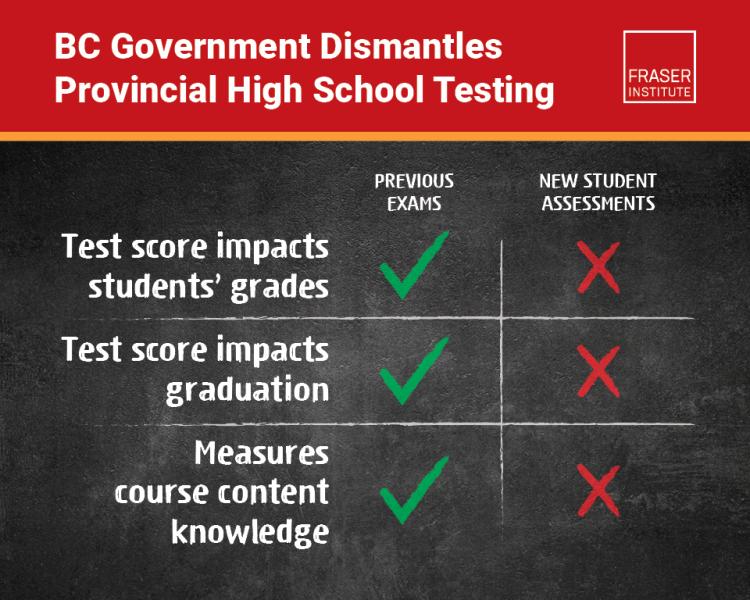The British Columbia government's new student "assessments" in high schools are much less valuable and useful than the previous exams in measuring student and school performance, finds a new study published by the Fraser Institute, an independent, non-partisan Canadian public policy think-tank.
"The new assessment regime is vastly inferior to the previous provincial exams, which the government has eliminated for high school students in the province," said Paige MacPherson, associate director of education policy at the Fraser Institute and author of The End of Accountability in British Columbia High School Student Performance.
The changes took place in stages beginning in 2015 when the B.C. government replaced the province's grades 10 and 12 provincial high school exams which affected final grades and were based on course content with student "assessments" in numeracy and literacy. By deemphasizing content knowledge, the new assessments are vaguer with respect to measuring student progression and knowledge.

And while the previous exams contributed to students' final grades in other words, they were meaningful to students and their school careers the new assessments do not affect a student's grades.
"The absence of any real consequences for student grades or graduation calls into question the usefulness and veracity of the new assessments," MacPherson said.
And although the assessments are technically "mandatory" for graduation, fewer students now complete these assessments compared to the previous exams.
For example, in 2021/22 (the latest year of available data), participation in the Grade 10 numeracy assessment was 22.3 percentage points lower than participation in the Grade 10 math exams in 2015/16. During the same time period, it was a similar story for the Grade 10 literacy assessment vs. Grade 10 English exams (17.1 percentage points lower participation) and the Grade 12 literacy assessment vs. Grade 12 English exams (14.2 percentage points lower participation).
"Oddly, graduation rates have increased even though participation rates for the assessments which are supposed to be mandatory have declined," MacPherson said.
As a result of the questionable quality of the new assessments, the Fraser Institute will no longer publish the British Columbia Secondary Schools Report Card, which had been published since 1998. And parents, educators and policymakers will no longer have access to this provincewide objective and comparative measure of high school performance in B.C.
"By degrading student testing, the B.C. government has done a great disservice to families across the province," MacPherson said.













